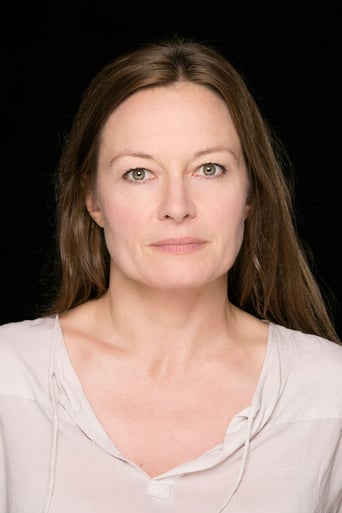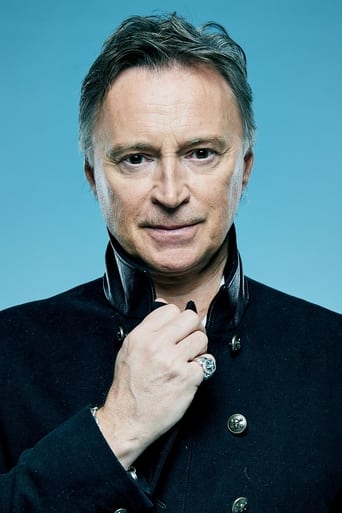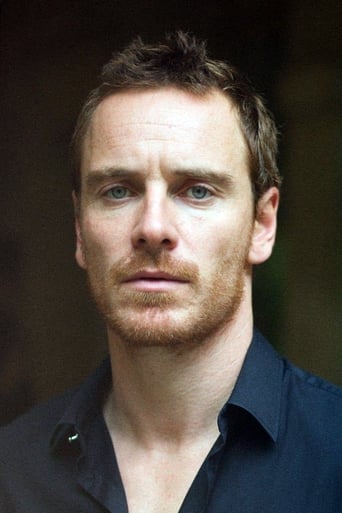TrueJoshNight
Truly Dreadful Film
Titreenp
SERIOUSLY. This is what the crap Hollywood still puts out?
Dorathen
Better Late Then Never
Staci Frederick
Blistering performances.
edjavega
It was expected that this series would take an anti-Catholic tone, after all, it appears most of England had grown rabidly anti-Catholic (not without reason) at this time.But in scenes where the Catholic plotters were planning to blow up the Parliament, it was a bit disturbing to have the script make the characters use terms such as "martyrs to the cause" and decide that, if innocent Catholic bystanders were to be killed by their plot, that was "alright", since they would be dying for the Church or something like that.Personally, I don't think Fawkes and company thought in those lines, since they needed all the Catholics they could get, since they were in a minority in Britain. Were the producers making the Catholic plotters appear like something out of today's Al-Qaeda, to make the film more "familiar" to today's audiences? The Protestants don't appear too angelic either. The ending sequence where King James I appeared totally mad or ruthless before Parliament, talking about unspeakable punishments for the plotters who only wanted "tolerance" - well, that sort of appeared like the producers were trying to get people to equate the King's behavior to Washington's response to 9/11 and come out thinking that the USA's reaction was quite over the top too. A political statement if there was one.And where did they get it that James I may have been homosexual and had a hard time to have a "normal" relationship with his wife? The historical James I had 9 children by Queen Anne.The point is, costume dramas have all the potential to be great dramas, without having to "adapt" the script to make the historical characters act and speak in a way that would make them look contemporary.At any rate, it was interesting TV fare. *** out of *****
Richard Hawkins
From the script and from Robert Carlyle's performance, you'd have no inkling that James I was anything other than a degenerate, evil homosexual. Therefore you lose interest in watching the show because his character has no redeeming qualities. Contrast this portrayal with a quote from an historical website: "Along with Alfred the Great, James is considered to have been one of the most intellectual and learned individuals ever to sit on the English or Scottish Throne. Under him, much of the cultural flourishing of Elizabethan England continued; individuals such as Sir Francis Bacon (afterwards Viscount St Albans) and William Shakespeare flourished during the reign. James himself was a talented scholar, writing works such as Daemonologie (1597), The True Law of Free Monarchies (1598), Basilikon Doron (1599) and A Counterblast to Tobacco (1604)." (http://en.wikipedia.org/wiki/James_I_of_England) There was absolutely no evidence of anything but venality and repulsiveness in the depiction of James I in this TV show.
MsKris
You'd think that combining a good director, excellent actors and fascinatinghistorical events would make for an entertaining miniseries -- but you'd bewrong. The writing stank, the history was worse than inaccurate, and I canbarely believe excellent actors such as McKidd and Carlyle were able to deliver some of their lines with a straight face. Historical inaccuracies aside, the story itself was delivered so disjointedly it was downright choppy -- almost as if an entirely different director and writer made each half. Skip this one.
djj-2
After viewing the first two episodes (shown together on the UK terrestrial channel BBC 2), I wanted to recommend the series.The title brings to mind "Guy Fawlkes", but the mini-series is actually the story of Mary, Queen of Scots - a tale which is amongst the most dramatic in the whole of Scottish history.Given that all Scottish school children study this period in great detail (myself included!), the responsibility of all concerned is high.It was with great delight that I found the series an honest and compelling human drama, and the (historically known) actions of the characters made perfect sense in the light of the characterisations and script.I was concerned that the whole affair would be dragged down by either the weight of historical authenticity or the need to create a drama for modern sensibilities.The historical ambiguities in the character of Mary were perfectly realised as drama: the transition from a French childhood to become a champion of the Scottish cause was credible. Her involvement in political assassinations was cleverly presented as "for the good of Scotland" rather than as cold-hearted scheming. So in this drama Mary is a heroine, though historians will argue endlessly on this one. My recall of school history is not good enough to know where liberties have been taken with historical fact.Some flaws were present - the character of David Rizzio was not fleshed out sufficiently. The feel of the production could be criticised a little as a McGovern "housing estate drama" in costume e.g. the simple-minded Protestant/Catholic vein pervading the production. However, as the drama really gets going through the romance between Mary and her "bit of Scottish rough" (Lord Bothwell), perhaps one should acknowledge the universality of the human condition.This is not an "Elizabeth" which re-wrote the book for cinematic historical realisations. However, "Gunpowder, Treason and Plot" is a likable and worthy production, which may not be absolutely top notch, but does seem a little tucked away on BBC 2 on a Sunday evening, when it deserves wider viewing.I await the remaining episodes with interest.






